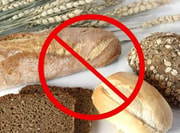Discover the money-saving ways Australians are using amidst rising living costs
By
Seia Ibanez
- Replies 9
The dream of a comfortable life is becoming increasingly elusive as the nation grapples with a significant cost of living crisis.
The escalating housing costs and the financial aftermath of a global lockdown have left many Australians re-evaluating their spending habits and making drastic cutbacks.
The Sydney Morning Herald recently questioned whether we are witnessing the 'end of the Australian middle class' as more and more Aussies report their struggles.
The rising cost of living has forced many to reconsider their day-to-day purchases and eliminate common staples, including food.
Some Australians have confessed to not consuming red meat in months due to skyrocketing supermarket prices. Others have resorted to cancelling their streaming accounts and ‘started sailing the high seas of piracy’.
Some also admitted that they were ‘going easy’ on their car’s accelerator, where they ‘just let it coast when I see a red light ahead’.
Social media has been abuzz with discussions on how Australians manage the rapid increase in the cost of living.
The common ritual of indulging in a breakfast cafe trip has become a luxury many can no longer afford.
The cost of dining out has led people to reduce or eliminate this expense from their budgets, opting for more economical meals at home.
Once considered a cheap and convenient meal option, fast food has also seen a significant price increase.
'Surely fast food places have to be losing business. Who is buying a Big Mac meal for like $20? I can make lunches for a week for the same price, and it actually tastes like real food,' one person commented.
‘The Bacon, Egg and Cheeseburger at my local cafe near work has gone from $4.50 to $6.50, to $7.50, to $8.50 and now $9.50. Last one of those I’ll be buying for a while,’ another added.
However, shopping at the supermarket is not always the cheapest option.
One shopper recently shared their shock at their ‘insane’ purchase of $22.80 for ingredients to make a simple ham and cheese sandwich.
Families have also rarely bought full cuts of premium meats like steak or chicken breast, as they turned to more budget-friendly but less-healthy options like minced meat and chicken tenders.
Chips, soft drinks, beer and microwave popcorn were among the most common impulse purchases now considered too expensive by many.
One person shared, 'If the bag is over $3.50, I don't buy them. That's the absolute most I'll pay for a packet of crisps.'
Australians have also become conscious of buying beverages.
Some venues now charge over $12 for a can of beer, which customers flatly decline.
The grim situation has also led to the re-evaluation of entertainment budgets, with many Australians strategically subscribing to streaming services during discounted periods or cancelling their subscriptions entirely.
Hand-me-downs have also become the norm for many, as parents opted out of buying new clothes for their children and relied on previously worn items as a cost-effective alternative.
Window shopping in department stores is less frequent as families tighten their financial belts. They said they minimised their trips to retail giants and only go there when necessary and with a specific purpose.
Browsing and impulse buying practices of shoppers have been replaced with a more intentional and focused shopping approach.
People are being forced to forgo a lot more than just takeaway coffee.
‘We’re seeing a new demographic of people turning to charities for support over the past 18 months,’ a spokesperson for St Vincent de Paul Society, a volunteer organisation in New South Wales, noted.
‘It has been very concerning to see a growing number of people in employment and families on dual incomes reaching out in a time of desperation because of the cost of living.’
According to not-for-profit Foodbank’s 2023 Hunger Report, an estimated 3.7 million households are battling serious food insecurity.
Food insecurity is the need to make 'unenviable choices about what and when they eat', like skipping meals or not eating the whole day.
Around 50 per cent of Aussies are experiencing 'some level of distress in meeting the most basic needs' when it comes to putting food on the table. This harsh reality paints a stark picture of the current cost of living crisis.
Foodbank Chief Executive Brianna Casey said, ‘Food insecurity is waking early and sending your child off to school with a rumbling tummy and empty lunch box because you’ve been forced into an impossible choice between paying the rent or buying food that week.’
‘Food insecurity is living at home alone as a pensioner, convincing yourself that three meals a day is a luxury and that two–or even one–will suffice.’
‘Food insecurity is rushing to the fruit platter at a working lunch in the office because fresh fruit and vegetables have become a treat rather than a dietary staple,’ she added.
‘Food insecurity is now having a mortgage, a full-time job and a side hustle, yet food is a discretionary spend in the household budget.’
 What are your money-saving tips amidst these rising living costs? Share them with us in the comments below.
What are your money-saving tips amidst these rising living costs? Share them with us in the comments below.
The escalating housing costs and the financial aftermath of a global lockdown have left many Australians re-evaluating their spending habits and making drastic cutbacks.
The Sydney Morning Herald recently questioned whether we are witnessing the 'end of the Australian middle class' as more and more Aussies report their struggles.
The rising cost of living has forced many to reconsider their day-to-day purchases and eliminate common staples, including food.
Some Australians have confessed to not consuming red meat in months due to skyrocketing supermarket prices. Others have resorted to cancelling their streaming accounts and ‘started sailing the high seas of piracy’.
Some also admitted that they were ‘going easy’ on their car’s accelerator, where they ‘just let it coast when I see a red light ahead’.
Social media has been abuzz with discussions on how Australians manage the rapid increase in the cost of living.
The common ritual of indulging in a breakfast cafe trip has become a luxury many can no longer afford.
The cost of dining out has led people to reduce or eliminate this expense from their budgets, opting for more economical meals at home.
Once considered a cheap and convenient meal option, fast food has also seen a significant price increase.
'Surely fast food places have to be losing business. Who is buying a Big Mac meal for like $20? I can make lunches for a week for the same price, and it actually tastes like real food,' one person commented.
‘The Bacon, Egg and Cheeseburger at my local cafe near work has gone from $4.50 to $6.50, to $7.50, to $8.50 and now $9.50. Last one of those I’ll be buying for a while,’ another added.
However, shopping at the supermarket is not always the cheapest option.
One shopper recently shared their shock at their ‘insane’ purchase of $22.80 for ingredients to make a simple ham and cheese sandwich.
Families have also rarely bought full cuts of premium meats like steak or chicken breast, as they turned to more budget-friendly but less-healthy options like minced meat and chicken tenders.
Chips, soft drinks, beer and microwave popcorn were among the most common impulse purchases now considered too expensive by many.
One person shared, 'If the bag is over $3.50, I don't buy them. That's the absolute most I'll pay for a packet of crisps.'
Australians have also become conscious of buying beverages.
Some venues now charge over $12 for a can of beer, which customers flatly decline.
The grim situation has also led to the re-evaluation of entertainment budgets, with many Australians strategically subscribing to streaming services during discounted periods or cancelling their subscriptions entirely.
Hand-me-downs have also become the norm for many, as parents opted out of buying new clothes for their children and relied on previously worn items as a cost-effective alternative.
Window shopping in department stores is less frequent as families tighten their financial belts. They said they minimised their trips to retail giants and only go there when necessary and with a specific purpose.
Browsing and impulse buying practices of shoppers have been replaced with a more intentional and focused shopping approach.
People are being forced to forgo a lot more than just takeaway coffee.
‘We’re seeing a new demographic of people turning to charities for support over the past 18 months,’ a spokesperson for St Vincent de Paul Society, a volunteer organisation in New South Wales, noted.
‘It has been very concerning to see a growing number of people in employment and families on dual incomes reaching out in a time of desperation because of the cost of living.’
According to not-for-profit Foodbank’s 2023 Hunger Report, an estimated 3.7 million households are battling serious food insecurity.
Food insecurity is the need to make 'unenviable choices about what and when they eat', like skipping meals or not eating the whole day.
Around 50 per cent of Aussies are experiencing 'some level of distress in meeting the most basic needs' when it comes to putting food on the table. This harsh reality paints a stark picture of the current cost of living crisis.
Foodbank Chief Executive Brianna Casey said, ‘Food insecurity is waking early and sending your child off to school with a rumbling tummy and empty lunch box because you’ve been forced into an impossible choice between paying the rent or buying food that week.’
‘Food insecurity is living at home alone as a pensioner, convincing yourself that three meals a day is a luxury and that two–or even one–will suffice.’
‘Food insecurity is rushing to the fruit platter at a working lunch in the office because fresh fruit and vegetables have become a treat rather than a dietary staple,’ she added.
‘Food insecurity is now having a mortgage, a full-time job and a side hustle, yet food is a discretionary spend in the household budget.’
Key Takeaways
- Australians are resorting to extreme measures due to the country's ongoing cost of living crisis.
- Many Aussies have to reassess their everyday purchases and are cutting out common staples from their diets due to inflated prices.
- The cost of dining out and buying groceries has become a significant issue, causing individuals to reduce or eliminate these from their budgets, often opting for more budget-friendly but less healthy options.
- An estimated 3.7 million Australian households are currently dealing with serious food insecurity, with people skipping meals or going whole days without eating.









